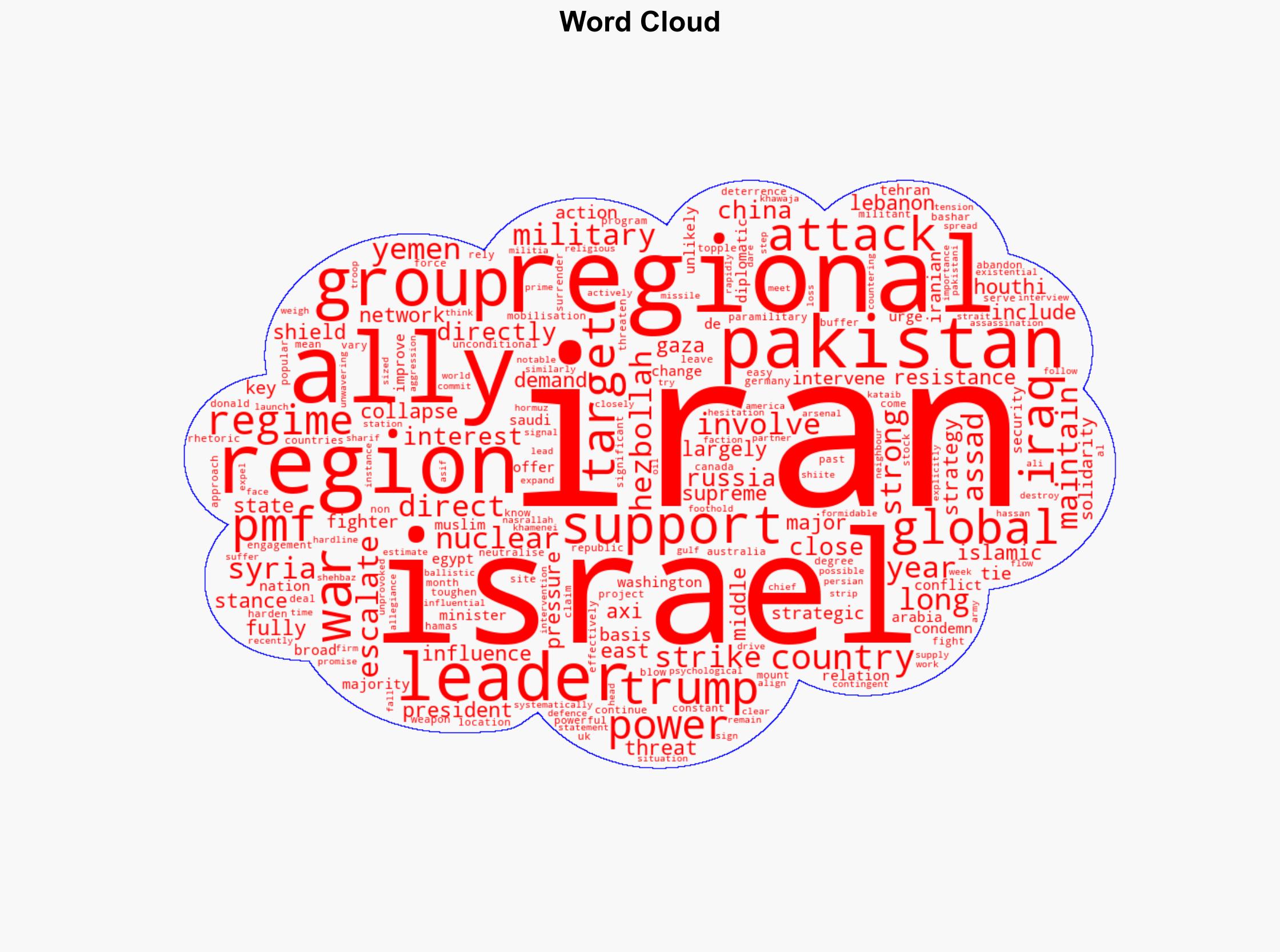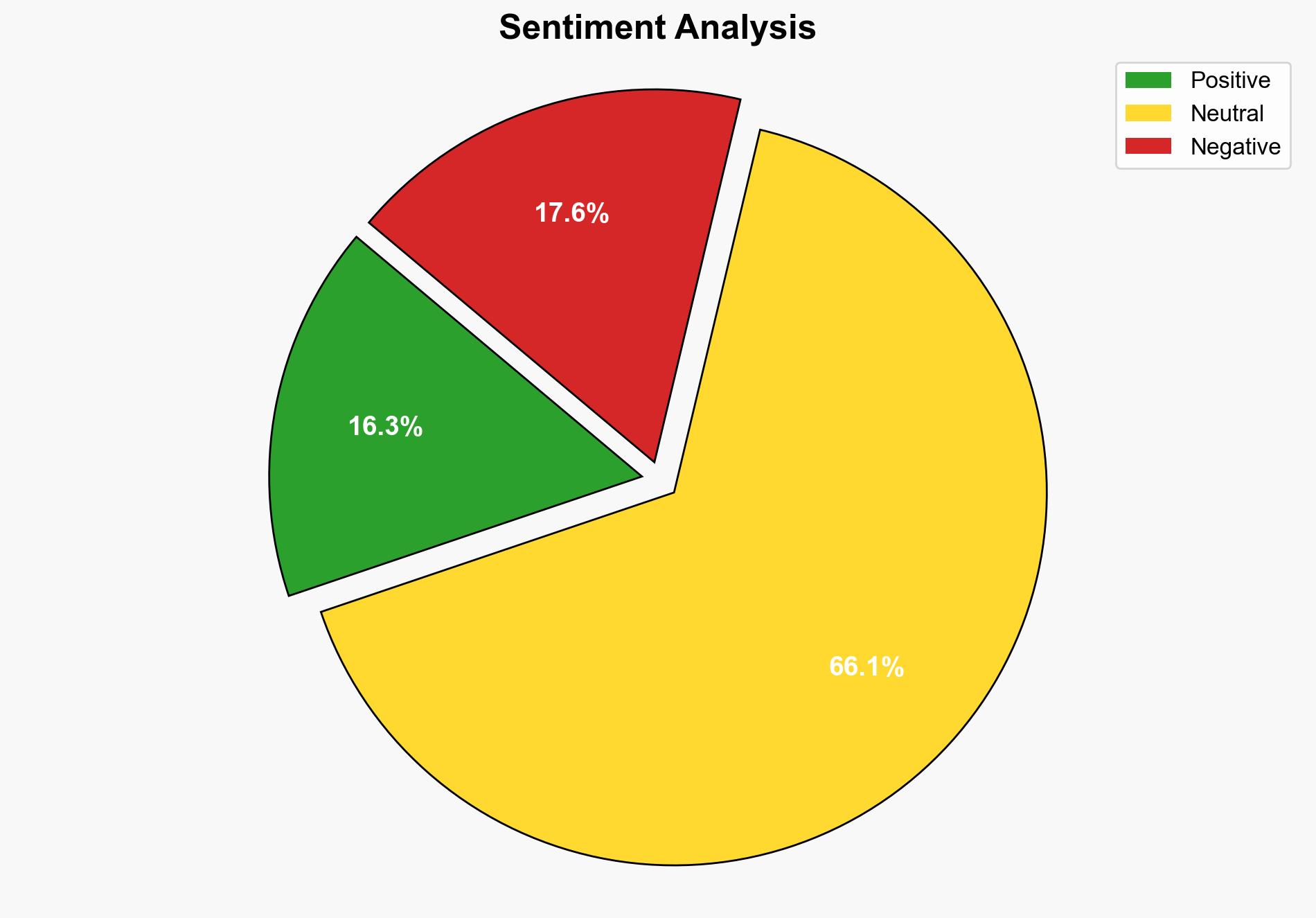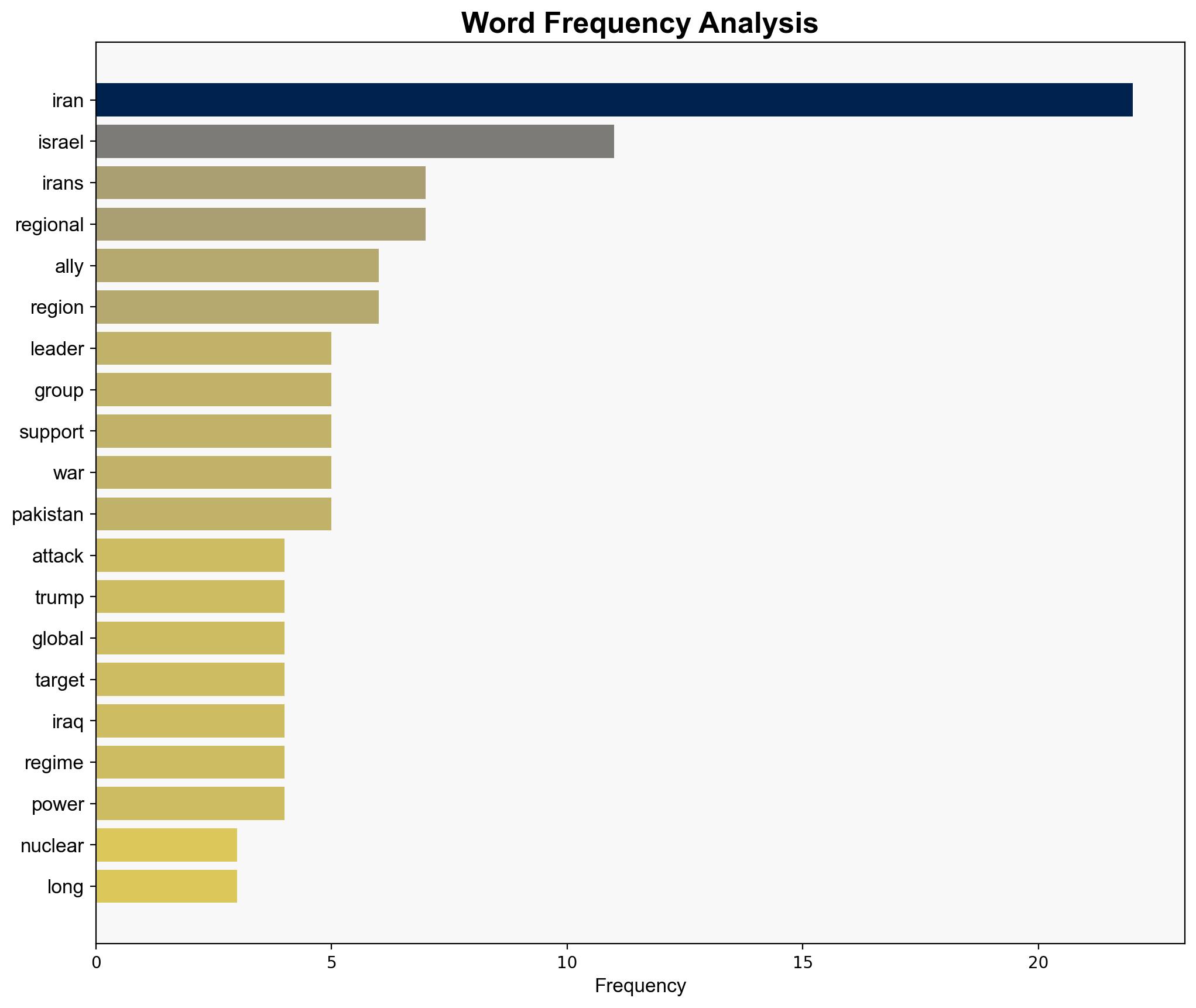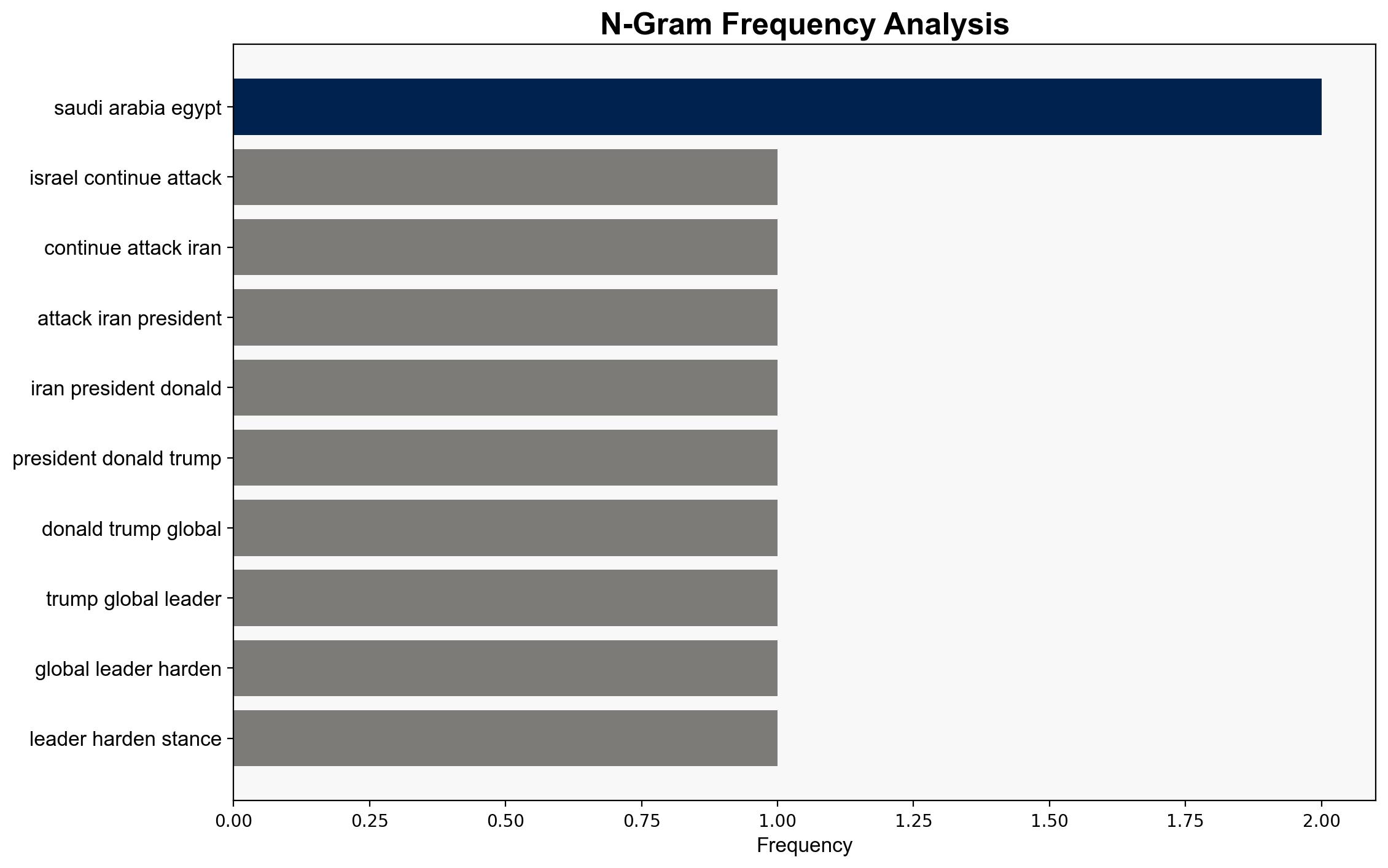Who are Irans allies And would any help if the US joins Israel in its war – The Conversation Africa
Published on: 2025-06-19
Intelligence Report: Who are Iran’s Allies and Would Any Help if the US Joins Israel in Its War – The Conversation Africa
1. BLUF (Bottom Line Up Front)
Iran’s strategic alliances in the Middle East, primarily through non-state actors and regional powers, are crucial to its deterrence strategy against external threats. While Iran has cultivated relationships with groups like Hezbollah, the Popular Mobilisation Forces (PMF), and the Houthis, these alliances face significant pressure from Israeli military actions. The likelihood of direct intervention by Iran’s state allies, such as Pakistan, remains low, with diplomatic efforts prioritized to de-escalate tensions.
2. Detailed Analysis
The following structured analytic techniques have been applied to ensure methodological consistency:
Causal Layered Analysis (CLA)
Surface events include ongoing Israeli military actions against Iranian-backed groups. Systemic structures involve Iran’s reliance on proxy networks for regional influence. Worldviews reflect Iran’s strategic narrative of resistance against Western and Israeli aggression. Myths center on religious and ideological solidarity within the “Axis of Resistance.”
Cross-Impact Simulation
Potential US involvement could escalate regional conflicts, impacting global oil supply through the Strait of Hormuz and prompting retaliatory actions by Iranian proxies against US interests in the region.
Scenario Generation
Best case: Diplomatic interventions lead to de-escalation. Worst case: Full-scale regional conflict involving multiple state and non-state actors. Most likely: Continued proxy engagements with periodic escalations.
Network Influence Mapping
Iran’s influence is strongest with Hezbollah, PMF, and the Houthis. Regional power dynamics involve complex relationships with countries like Pakistan and China, which may act as mediators rather than direct participants.
Narrative Pattern Analysis
Iran’s ideological narrative emphasizes resistance and sovereignty, countering perceived Western and Israeli imperialism. This narrative is used to justify support for proxy groups and maintain regional influence.
3. Implications and Strategic Risks
The potential for escalation poses significant risks to regional stability and global economic interests, particularly in energy markets. Cyber threats and asymmetric warfare tactics could be employed by Iranian proxies, targeting US and allied interests.
4. Recommendations and Outlook
- Enhance diplomatic efforts to mediate tensions and prevent escalation into broader conflict.
- Strengthen cybersecurity measures to protect critical infrastructure from potential Iranian cyber operations.
- Monitor and engage with regional partners to maintain open communication channels and coordinate responses to emerging threats.
5. Key Individuals and Entities
Hassan Nasrallah, Ali Khamenei, Shehbaz Sharif, Khawaja Asif
6. Thematic Tags
national security threats, cybersecurity, counter-terrorism, regional focus





